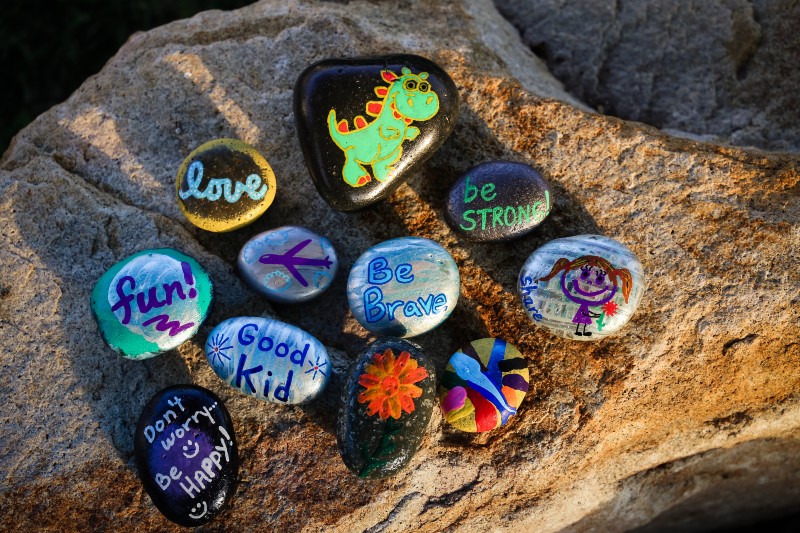When Nice Words Don’t Help

Your daughter cries, “I wish I were pretty.” Your son mutters, “I’m stupid.” Or any variation: I’m fat / a loser / the worst player.
Reflexively, you exclaim: “That’s not true! You are attractive / smart / popular / talented!” Your intentions are good. You mean it. But, instead, your compliments seem only to irritate them. Why?
It’s not that your opinion doesn’t matter (although, to your teen, it probably doesn’t). It’s that your child does not believe you. And, your nice words don’t help. They may even hurt.
Most teens I’ve worked with seriously doubt the motives behind their parents’ compliments. Some explain: “My mom says I’m pretty because she feels sorry for me,” “My dad says I’m smart because he has to. He’s my dad,” “My parents say I’m good just to make me feel better.” These teens can twist warm parental encouragement into a shaming experience.
He doesn’t accept himself. Against this intensely negative self-focus, your compliments don’t stand a chance.
Think of it this way. Imagine (or remember when) your son fell off his bike at age 5, and you announced cheerfully: “You’re fine! Just keep going!” But he actually didn’t feel fine. He was really hurt. Your encouragement may have invalidated his experience. He did not feel understood or supported.
The child who puts herself down does not accept herself. When you insist that she is thin, etc., it invalidates her. She wasn’t understood or supported.
You’ve heard of “vicious cycles…” When you respond with emotional warmth and encouragement to your child’s self-criticisms…you may actually be rewarding her non-acceptance of herself. He learns that he gets flattery and reassurance (even if it’s not totally believable and certainly not enduring) for putting himself down. In a low mood, in a time of self-doubt, she may increasingly berate herself, unconsciously expecting warmth and encouragement. As she negatively judges herself, you amp up compliments, she judges more negatively, and so on.
Self-Criticism through the Ages: How to Respond
Ages 3-4: Surprise: even youngsters this age can come down pretty hard on themselves. Many times, it takes the form of self-harm, such as banging their head on a wall or smacking their face when upset or frustrated.
Ages 5-6: Fit and active children as young as this (boys and girls) have told me they’re “fat.” Body image is no longer just a teen thing. However, self-criticism at this age is more often related to (1) negative mood, (2) frustration, and (3) fears that he/she has disappointed others. Some children may hurt themselves physically. Others use words: “I can’t do this,” “I’m stupid.”
TRY THIS:
- Be aware of modeling. Assuming you do not hurt yourself (please don’t do that), your child may be picking up on your self-criticism or overly rigid self-expectations.
- Respond to your child as follows. Imagine he has hit another kid, to get you into this mindset.
- Adopt a “stop-the-press!” attitude. Stop what you are doing. Look squarely at your child. Without being harsh, be firm. Wear a stern face. Matter-of-factly say, “You are being a bully to yourself. That is not ok. If you do it again, you will get a time out.” If your child repeats it, follow through on time out. If your child stops, wait 1 minute. WAIT. (You do not want to accidentally reinforce self-bullying).
- After 1 minute (or after time out): Warmly approach your child and explain what happened: “You spilled the juice on the carpet. That was a mistake. You feel bad about it. I’m pretty irritated, too. But mistakes happen. I really like that you care so much to do the right thing. That’s a nice thing about you. You may not bully yourself. Nobody bullies my kid! Help me clean up this mess now.”
Ages 7-9: The developmental task for these kiddos is to develop industry, to decide if they are skillful, motivated, driven, and productive individuals. This is often decided as they compare themselves to others. This age is where self-esteem starts to solidify. Your opinion as a parent is still very important to your child. Self-criticism at this age may stem from viewing peers are more successful/able/capable/attractive/popular, etc. You may expect unflattering comments related to these.
Ages 10-14: The focus turns more and more toward friends and peers. Your opinion matters less and less. Self-criticism that starts at this age can be a sign of depression and low self-esteem. Ongoing self-loathing has dire social consequences; it is hard to make friends if you don’t like yourself. Occasional self-doubt may be common. It will most often relate to how she sees herself compared to others of her age and gender. A likely source may be peer comments and bullying. Particularly girls who enter puberty early are at risk of negative attention.
TRY THIS:
- It is very uncommon for children this age to self-harm. If this happens, immediately consult a mental health professional.
- Respond to your child as follows:
- Do not let comments go unacknowledged. Giving full attention to your child, say matter-of-factly: “That was a mean thing to say to yourself. Wow.” Your child will probably reassert her self-criticism. Avoid the impulse to correct her or praise her.
- Say, “Help me understand that. How are you fat?” Walk your child through a step by step evaluation of his thought process. Continually ask, “What is the evidence?”
- What if there is evidence? What if your child is fat? Then, you problem-solve with her. Make an appointment with her pediatrician. Discuss diet and exercise, revising grocery lists, family walks, etc. Make a plan and follow through. All the while, support your child’s self-esteem. Tell her not to bully herself.
- Be aware of the validity in your child’s statements. He is probably not the best player on the team. So, what can he do about that? If he wants to improve, help him develop a self-guided practice routine. All the while, support his self-esteem.
- You will probably find what’s called a “cognitive error.” It may sound like this: Because I don’t understand algebra, I’m stupid. Explain that error to your child.
- Change your tactic. Say, “You are good friend. I notice that you encourage, support, and are gentle with your friends. If your friend did not understand algebra, would you tell him he’s stupid?” You will likely discover that his self-rules do not apply to others. Follow this line of reasoning, with the goal of helping your child develop insight into his overly-high self-standards. “Why are the rules different for you?” Explain that he is bullying himself, and that it won’t be tolerated. Offer to assist him with homework or to find academic supports for him.
- What if there is evidence? What if your child is fat? Then, you problem-solve with her. Make an appointment with her pediatrician. Discuss diet and exercise, revising grocery lists, family walks, etc. Make a plan and follow through. All the while, support your child’s self-esteem. Tell her not to bully herself.
Ages 15-19: Self-criticism at this age probably stems from a history of failed attempts at relationships, tasks, or improvements. With teens, there can be a range of triggers for self-criticism. Even if your child only occasionally states self-loathing, it’s probably true that she has chronic negative self-statements in her psyche. Depression may be very likely. Children this age are capable of deeper reasoning, understanding, and dialogue. The self-bullying speech will probably interest him, but not have much effect on curbing self-criticism.
TRY THIS:
- It is very uncommon for children this age to self-harm. If this happens, immediately consult a mental health professional.
- Respond to your child as follows:
- Do not let comments go unacknowledged. Giving full attention to your child, say matter-of-factly, “Whoa. That was a tough thing to say about yourself! Are you okay?” Avoid the impulse to correct her or praise him.
- Initiate a dialogue, the goal of which is to show how the self-criticism is mood-dependent—it comes from your child feeling sad, anxious or irritable.
- If the comments are not mood-dependent, and made in a cavalier, joking way, say, “That is not acceptable or funny. And it’s not a good habit. Please stop that.”
- More likely, the comments are mood-dependent. Help your child identify what triggered the statement, what the mood is, and what she can do to improve her mood. Help her generate coping skills to feel better: listen to music, watch TV, go for a walk, call a friend, read a book, play with the dog, take a shower…
- Your child may admit, “Even if I were popular / thin / smart/ athletic, I still would not like myself.” If so, make an appointment with a mental health professional.





